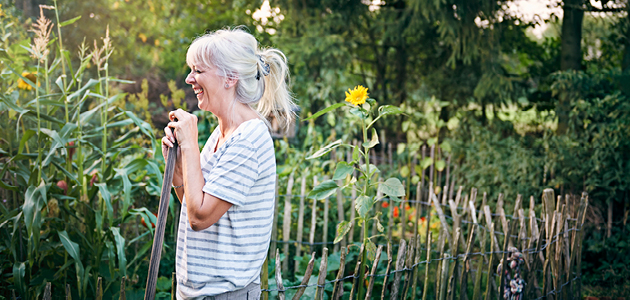Everyone knows that bees are the industrious little insects responsible for giving us honey. But we often don’t stop to consider how much more they do for humans — and how critical their survival is to ours.
In fact, honeybees are responsible for roughly 80% of all pollination worldwide. Why is that important? Because 70 of the top 100 human food crops rely on pollination to produce that food.1 If you’ve ever eaten almonds, apples, apricots, avocados, blueberries, cantaloupe melon, cashews, cranberries, cucumbers, aubergine, grapes, kiwis, mangoes, okra, peaches, pears, peppers, strawberries, tangerines, walnuts or watermelons, for example, you can thank the busy bees who pollinated those crops.2
Bees are vital to the world’s agricultural industries. The simple truth is this: without bees, humans can’t grow enough food to feed everyone on the planet.
Unfortunately, honeybees have been dying at a disturbing rate over the past decade. A variety of factors are contributing to their decline, but most of them can be traced directly to human activity including the use of pesticides, habitat destruction, air pollution and global warming.3
You can help “bee” the solution!
Everyone can play an important role in saving the bees and protecting our global food crops in the process. In fact, Foresters Financial has partnered with several great organisations like Whole Kids Foundation, the David Suzuki Foundation, and Conservation Foundation to offer a series of pollinator activities for member families to help increase awareness about the role of bees in the food chain and to build a better understanding about where our food comes from.
On 15th May, Foresters hosted a webinar to recognise World Bee Day — and it created quite a buzz! Nearly 200 member households from three different countries dove into the busy world of bees. Foresters will also be creating Butterflyways pollinator gardens, bee baths, and bee houses as well as expanding existing beekeeping projects in schools and with other Community Partners that are working hard to support pollinators in their neighbourhoods.
The Bee Conservancy recommends the following bee-friendly activities:
- Plant a bee garden. Add bee-friendly plants to your gardens, planters and window boxes. Providing bees with a good source of pollen and nectar, as well as habitat where they can live, is critical for their survival.
- Ditch the pesticides and chemicals. Use organic products and natural solutions when maintaining your gardens and lawns. Synthetic pesticides, fertilisers, herbicides and neonicotinoids are harmful to bees.
- Create a bee bath. Just like birds, bees need a source of water to survive. Fill a shallow birdbath or bowl with clean water and make sure there are pebbles and stones inside that bees can land on to safely take a drink.
- Support local beekeepers. Beekeepers sell both the honey and products made from beeswax that comes from their hives, so of course they have a vested interest in the health and welfare of their bee colonies. Purchasing local honey and beeswax products helps support the health of local bee colonies.
- Provide shelter for bees. 70% of bees live underground while 30% live inside hollow trees or plant stems. You can help ensure that bees have a safe place to live by leaving an undisturbed piece of land on your property just for them.
- Clean up your garden in the spring, not the fall. Garden debris gives bees and other beneficial insects the perfect place to spend the winter, so don’t cut down those spent stalks until the weather warms up to a consistent 10C in the spring.4
We can be part of the solution when we work together to protect our precious natural resources — including honeybees. For more information on the plight of bees and what you and your family can do to make a difference, visit Greenpeace UK and Whole Kids Foundation.
SOURCE
1,3 https://www.greenpeace.org/usa/sustainable-agriculture/save-the-bees/
2 https://www.elitedaily.com/news/world/humans-need-bees-to-survive/755737
4 https://cornerpollinatorgarden.net/spring-clean-up/




